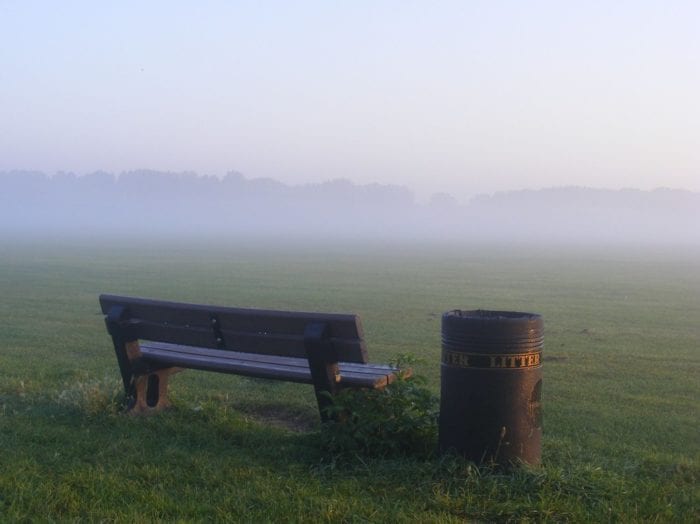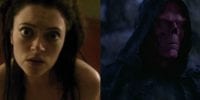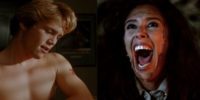Greg Buchanan’s debut novel begins with an eerie premise: sixteen horse heads, buried in the ground forming a circle are found in the small seaside town of Ilsmarsh. Local detective, Alec, and visiting forensic veterinarian, Cooper, investigate the case and the book is mostly told from their viewpoints as well as a few other locals.
With that first scene, the tone is set perfectly. The town itself is slowly sinking, both physically and metaphorically. The tourists no longer flock to the town, businesses begin to shutter, and residents are beginning to leave. There’s a persistent sense of loneliness and melancholy throughout the novel, especially within the main characters. Detective Alec is still mourning the loss of his wife to cancer and struggling to connect with his teenage son Simon. He knows he should talk to him more but the words stick in his throat. They’re more roommates than a family unit. Cooper seems completely alone in her life and focuses intently on her work with animals.

The horse autopsies are described in great detail with blunt medical language. The methodical care and attention you would need for such a task are conveyed well. The balance between the previously mentioned loneliness and the unsettling animal deaths is what makes the story special. It never tilts too far into one side to lose your attention.
Besides the medical sections, the book uses very “plain” language—and I don’t mean that negatively—as it adds to the overall gloomy feel the town of Ilsmarsh and its residents exude. The discovery of the horses that opens the novel, and later incidents, are described in a matter-of-fact way that leaves the worst up to your imagination. It’s a horrible event that doesn’t need extra embellishments. This happened, what do you think about it? How does it make you feel? These, I feel, are the questions Buchanan is asking the reader.
Chapters are extremely short, sometimes less than half a page, each changing viewpoints or scenes. While some might dislike this and prefer long chapters, I found it helped keep a fast pace for a slow-burn crime story. To be honest—it helped keep my attention. If I’m not invested in a book my reading pace will slow to a crawl; with Sixteen Horses, I couldn’t put it down—and when I did, I’d come back to it quite quickly. I’d say I read it (for me) in record time. With a page count of over 400, it flew by.
While much of the book revolves around the investigation, the town itself is fleshed out and we learn its history and decline. I come from a town with much of the same qualities: seaside, loss of the main industry, many leaving for better prospects elsewhere (myself included). Perhaps this helped me connect with Sixteen Horses more than most. Neither Alec nor Cooper are from Ilsmarsh (although Alec has lived there for a few years) so we get a bit of an outsider’s perspective into the general state of the area.
It’s been a while since a book made me upset but Sixteen Horses managed to get me. In addition to the horses, there are several other incidents involving animals; take this as a general content warning. I remember reading a specific passage and having to take a break to chill out (and hug my cats). It’s not graphic but rather tragic and fits in with the rest of the story. The way it’s described (once again with the very straightforward language) is enough to unsettle.
Because this is a crime drama there are plenty of twists and turns. I admit that even with movies I never attempt to “figure out” who the killer is. Whatever part of my brain that makes those connect-the-dots connections switches off and I enjoy the ride for what it is. If you’re the kind who likes to figure it out while you read I think there’s plenty for you here as well, as information is both peppered in and slowly revealed.
You could almost describe Sixteen Horses as dreamlike. Finding that many dead animals arranged in a ritualistic manner feels too fantastical to be real. If you like David Lynch’s films you might understand the dichotomy. When Alec first sees the big, glassy eyes of the horses staring up at the ground he describes it as both disturbing and beautiful—which sums it up nicely.
Something that does fall a bit short is the reveal of the killer, and while I won’t say who I will give this as a mild spoiler warning: the culprit isn’t explicitly named until the epilogue. The “big twist” being told at the very end might come as a disappointment to some, especially those who are fond of crime novels. I see it as the identity not being as important as the lasting impact of the dead horses on the town and its people. We don’t remember the criminal as much as the crime. It’s been a positive trend in recent years that mass shooters do not appear on the news and instead focus on the victims and their lives. Giving them attention and making them famous is a goal in some of the perpetrators’ minds. That may not be what Buchanan intended but it’s what I take out of it, as we all experience stories differently.
Overall I would say Sixteen Horses is my favourite book of 2021 and I’m looking forward to Buchanan’s next work.
A copy of Sixteen Horses was provided by Flatiron Books for review purposes. It will be released on July 20th in America.
Looking for more horror book reviews? We’ve got you:
“Chasing the Boogeyman Is Genre-Bending Genius”
“Nothing But Blackened Teeth Is an Ambitious but Flawed Horror Novella”


